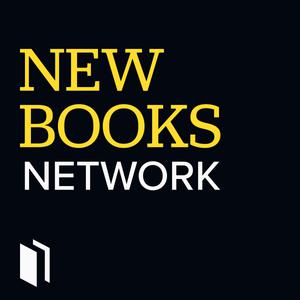
New Books Network
New Books
Interviews with Authors about their New Books
- 40 minutes 40 secondsAllison Schrager, "An Economist Walks Into A Brothel And Other Unexpected Places to Understand Risk" (Portfolio, 2019)
Whether you are a commuter weighing options of taking the bus vs walking to get you to work on time or a military general leading troops into war, risk is something we deal with every day. Even the most cautious of us can’t opt out—the question is always which risks to take to maximize our results. But how do we know which path is correct? Enter Allison Schrager. Schrager is not a typical economist. Like others, she has spent her career assessing risk, but instead of crunching numbers or sitting at a desk, she chose to venture out. Now, she travels to unexpected places to uncover how financial principles can be used to navigate hazards and prevent danger. In her new book An Economist Walks Into A Brothel And Other Unexpected Places to Understand Risk (Portfolio, 2019), Schrager puts together a five-pronged approach for understanding and assessing risk. First, she helps define what risk and reward mean for individuals. Then, taking into account irrationality and uncertainty, Schrager helps readers master their domains and ultimately get the biggest bang for what she calls the “risk buck.” While there are certain factors that cannot be predicted, An Economist Walks Into A Brothelmarries financial economics with real life examples to provide a road map, offer concrete advice, and maximize payoff.
Learn more about your ad choices. Visit megaphone.fm/adchoices
Support our show by becoming a premium member! https://newbooksnetwork.supportingcast.fm/new-books-network
30 April 2024, 9:00 am - 46 minutes 24 secondsAdia Harvey Wingfield, "Gray Areas: How the Way We Work Perpetuates Racism and What We Can Do to Fix It" (Amistad Press, 2023)
Labor and race have shared a complex, interconnected history in America. For decades, key aspects of work—from getting a job to workplace norms to advancement and mobility—ignored and failed Black people. While explicit discrimination no longer occurs, and organizations make internal and public pledges to honor and achieve “diversity,” inequities persist through what Dr. Adia Harvey Wingfield calls the “gray areas:” the relationships, networks, and cultural dynamics integral to companies that are now more important than ever. The reality is that Black employees are less likely to be hired, stall out at middle levels, and rarely progress to senior leadership positions.
Dr. Wingfield has spent a decade examining inequality in the workplace, interviewing over two hundred Black subjects across professions about their work lives. In Gray Areas: How the Way We Work Perpetuates Racism and What We Can Do to Fix It (Amistad Press, 2023), she introduces seven of them: Alex, a worker in the gig economy Max, an emergency medicine doctor; Constance, a chemical engineer; Brian, a filmmaker; Amalia, a journalist; Darren, a corporate vice president; and Kevin, who works for a nonprofit.
In this accessible and important antiracist work, Dr. Wingfield chronicles their experiences and blends them with history and surprising data that starkly show how old models of work are outdated and detrimental. She demonstrates the scope and breadth of gray areas and offers key insights and suggestions for how they can be fixed, including shifting hiring practices to include Black workers; rethinking organizational cultures to centralize Black employees’ experience; and establishing pathways that move capable Black candidates into leadership roles. These reforms would create workplaces that reflect America’s increasingly diverse population—professionals whose needs organizations today are ill-prepared to meet.
It’s time to prepare for a truly equitable, multiracial future and move our culture forward. To do so, we must address the gray areas in our workspaces today. This definitive work shows us how.
This interview was conducted by Dr. Miranda Melcher whose new book focuses on post-conflict military integration, understanding treaty negotiation and implementation in civil war contexts, with qualitative analysis of the Angolan and Mozambican civil wars.
Learn more about your ad choices. Visit megaphone.fm/adchoices
Support our show by becoming a premium member! https://newbooksnetwork.supportingcast.fm/new-books-network
30 April 2024, 8:00 am - 43 minutes 24 secondsÉric Fassin, "State Anti-Intellectualism and the Politics of Gender and Race: Illiberal France and Beyond" (CEU Press, 2024)
In this episode of the CEU Press Podcast, host Andrea Talabér (CEU Press/CEU Review of Books) sat down with Éric Fassin (Université Paris 8) to discuss his new book with CEU Press entitled, State Anti-Intellectualism and the Politics of Gender and Race: Illiberal France and Beyond (2024).
Éric Fassin examines the trend of state anti-intellectualism in France using the nation as a case study to demonstrate that this tendency is not limited to ostensibly illiberal regimes. He argues that today’s world requires an examination of this phenomenon beyond Cold War geopolitical divisions and highlights a global shift towards authoritarian neoliberalism. His book is a plea for the political urgency of intellectual work in a global moment of political anti-intellectualism.
Éric’s book is part of our new series, CEU Press Perspectives. The series offers the latest viewpoints on both new and perennial issues, these books address a wide range of topics of critical importance today. The new series, originating from an international collection of leading authors, encourages us to look at issues from a different viewpoint, to think outside the box, and to stimulate debate.
You can learn more about the series here.
The CEU Press Podcast delves into various aspects of the publishing process: from crafting a book proposal, finding a publisher, responding to peer review feedback on the manuscript, to the subsequent distribution, promotion and marketing of academic books. We will also talk to series editors and authors, who will share their experiences of getting published and talk about their series or books.
Interested in CEU Press’s publications? Click here to find out more here.
Stay tuned for future episodes and subscribe to our podcast to be the first to be notified.
Learn more about your ad choices. Visit megaphone.fm/adchoices
Support our show by becoming a premium member! https://newbooksnetwork.supportingcast.fm/new-books-network
30 April 2024, 8:00 am - 1 hour 11 minutesAndre Schmid, "North Korea's Mundane Revolution: Socialist Living and the Rise of Kim Il Sung, 1953-1965" (U California Press, 2024)
Histories of North Korea typically focus on one man — Kim Il Sung — and one narrative — his grand rise to absolute power. Andre Schmid’s new book, North Korea's Mundane Revolution: Socialist Living and the Rise of Kim Il Sung, 1953-1965 (University of California Press, 2024), tells a much more complex and richly textured story. Moving away from the focus on Kim Il Sung, Schmid looks at how the Korean population participated in party-state projects to create “New Living”: a quest for a better life, realized through socialism. Each part of North Korea’s Mundane Revolution focuses on a question that was central to a different aspect of New Living: How to self-improve? How to build more efficiently? How to make a happy family home? How to consume properly? In exploring these questions, Schmid looks at a wide range of overlooked sources, especially North Korean magazines and journals, complete with tongue-in-cheek cartoons and photographs. Wonderfully nuanced, empirically rich, and utterly compelling, this book not only sheds light on the origins of North Korea's durability, but it does so through a fascinating history of unhappy housewives and prefabricated apartments.
North Korea’s Mundane Revolution is sure to appeal to those interested in Korean history and global histories of gender, socialist revolution, and print culture, as well as anyone who has ever wondered "How do you do North Korean history?"
And if you want to read more about this book before diving in, you should check out how it fares at the ‘The Page 99 Test,’ here.
Learn more about your ad choices. Visit megaphone.fm/adchoices
Support our show by becoming a premium member! https://newbooksnetwork.supportingcast.fm/new-books-network
30 April 2024, 8:00 am - 42 minutes 21 secondsMelody Yunzi Li, "Transpacific Cartographies: Narrating the Contemporary Chinese Diaspora in the United States" (Rutgers UP, 2023)
Transpacific Cartographies: Narrating the Contemporary Chinese Diaspora in the U.S. (Rutgers University Press, 2023) examines how contemporary Chinese diasporic narratives address the existential loss of home for immigrant communities at a time of global precarity and amid rising Sino-US tensions. Focusing on cultural productions of the Chinese diaspora from the 1990s to the present -- including novels by the Sinophone writers Yan Geling (The Criminal Lu Yanshi), Shi Yu (New York Lover), Chen Qian (Listen to the Caged Bird Sing), and Rong Rong (Notes of a Couple), as well as by the Anglophone writer Ha Jin (A Free Life; A Map of Betrayal), selected TV shows (Beijinger in New York; The Way We Were), and online literature – Dr. Melody Yunzi Li argues that the characters in these stories create multilayered maps that transcend the territorial boundaries that make finding a home in a foreign land a seemingly impossible task. In doing so, these “maps” outline a transpacific landscape that reflects the psycho-geography of homemaking for diasporic communities. Intersecting with and bridging Sinophone studies, Chinese American studies, and diaspora studies and drawing on theories of literary cartography, Transpacific Cartographies demonstrates how these “maps” offer their readers different paths for finding a sense of home no matter where they are.
Dr. Melody Yunzi Li is an assistant professor of Chinese Studies in the Department of Modern and Classical Languages at the University of Houston. Her research interests include Asian diaspora literature, modern Chinese literature and culture, migration studies, translation studies, cultural identities and performance studies. She is the author of Transpacific Cartographies: Narrating the Contemporary Chinese Diaspora in the U.S. (New Brunswick: Rutgers University Press, 2023) and the co-editor of Remapping the Homeland: Affective Geographies and Cultures of the Chinese Diaspora. (London: Palgrave McMillan, 2022). She has published in various journals including Pacific Coast Philology, Telos and others. Besides her specialty in Chinese literature, Dr. Li is also a Chinese dancer and translator.
Linshan Jiang is a Postdoctoral Associate in the Department of Asian and Middle Eastern Studies at Duke University. She received her Ph.D. in East Asian Languages and Cultural Studies from the University of California, Santa Barbara, where she also obtained a Ph.D. emphasis in Translation Studies. Her research interests include modern and contemporary literature, film, and popular culture in mainland China, Taiwan, and Japan; trauma and memory studies; gender and sexuality studies; queer studies; as well as comparative literature and translation studies.
Learn more about your ad choices. Visit megaphone.fm/adchoices
Support our show by becoming a premium member! https://newbooksnetwork.supportingcast.fm/new-books-network
30 April 2024, 8:00 am - 1 hour 10 minutesChristian Hansel, "Memory Makes the Brain: The Biological Machinery That Uses Experiences To Shape Individual Brains" (World Scientific, 2021)
If you're interested in memory, you'll find a lot in Memory Makes the Brain: The Biological Machinery That Uses Experiences To Shape Individual Brains (World Scientific, 2021), from cellular processes to unique and interesting perspectives on autism.
- Detailed descriptions of cellular processes involved in forming a memory.
- Connecting those cellular processes to everyday experiences - like the memorable image of a butterfly seen during a hike decades ago.
- Comparisons of plasticity in different brain areas, like cortex, hippocampus, cerebellum.
- Comparisons of plasticity and learning in different phases of the human life.
- Important milestones in the history of neuroscience. Like Wiesel and Hubel's work identifying the critical period for plasticity, or Huttenlocher's discovery of synaptic pruning.
- Up-to-date science and open questions about autism, a wide range of phenomena that seems to be connected both to synaptic pruning and to the funtion of the cerebellum.
- An outlook on non-synaptic plasticity.
Professor Christian Hansel starts both the book and the conversation with establishing a very broad definition of memory. Traditionally, a lot of research focused on the "observable outcome" of learning: acquiring new skills, changing behavior. Instead, he defines memory as any event that changes the brain.
The first 2 chapters introduce major discoveries from the 1960s and 1970s. David Hubel and Thorsten Wiesel examined the visual system of kittens. They recognized that it's much more adaptive in a "critical period", ca. 4-8 weeks after birth. Peter Huttenlocher discovered another fascinating phenomena during childhood: synaptic pruning. In the years 2-12, a lot of synapses (connections between neurons) disappear.
Chapter 3 describes the molecular machinery behind all these observations. We'll get to know the terms LTP (long-term potentiation) and LTD (long-term depression), which mean the long-term strengthening and weakening of synaptic connections respectively. We find a detailed description of these processes, incl. the enzymes, neurotransmitters and receptors contributing to them.
Chapter 4 continues examining these processes across the human life span. The (perhaps surprising) conclusion: The machinery for synaptic plasticity is quite similar in a small child an in an adult. What's different is the magnitude of these processes.
Autism is a central topic both in the book and in the Hansel Lab's work. Chapter 5 starts with describing the difficulties of a definition. ASD (autism spectrum disorder) is an umbrella term encompassing several symptoms and intensities. In the last years, it has turned out that low degree of synaptic pruning plays a significant role in multiple forms of autism. We'll see in the next years how the research about synaptic pruning and learning can be used for clinical purposes. Understanding the biological mechanism can also make it easier to relate to some peculiar-sounding symptoms. If we consider that an individual's brain contains an unusually high number of synapses, their reports about unusually intense perceptions suddenly become more understandable.
A thought-provoking chapter is number 6. It describes various experiments with mouse models to study autism-like symptoms. The chapter might also make you reflect about the merits and shortcomings of animal models generally.
The cerebellum was long considered to be the brain area for finetuning movements. Now, it's clear that its repertoire is much bigger. In the interview, Christian describes a hypothesis that the cerebellum has a capability of timing. This in turn makes it a crucial factor in several behaviors beyond sophisticated movements, including speech.
We know a lot about synaptic plasticity and its significance in learning. Chapter 8 tackles the big, open question, what else? Which other processes contribute to memory formation? It presents some hypotheses about intrinsic plasticity.
Learn more about your ad choices. Visit megaphone.fm/adchoices
Support our show by becoming a premium member! https://newbooksnetwork.supportingcast.fm/new-books-network
30 April 2024, 8:00 am - 57 minutes 34 secondsVictoria Sparey, "Shakespeare's Adolescents: Age, Gender and the Body in Shakespearean Performance and Early Modern Culture" (Manchester UP, 2024)
Shakespeare's Adolescents: Age, Gender and the Body in Shakespearean Performance and Early Modern Culture (Manchester UP, 2024) by Dr. Victoria Sparey examines the varied representation of adolescent characters in Shakespeare's plays. Using early modern medical knowledge and an understanding of contemporary theatrical practices, the book unpacks complexities that surrounded the cultural and theatrical representations of 'signs' associated with an individual's physical maturation. Each chapter explores the implications of different 'signs' of puberty, in verbal cues, facial adornments, vocal traits and body sizes, to illuminate how Shakespeare presents vibrant adolescent selves and stories.
By analysing female and male puberty together in its discussion of adolescence, Shakespeare's adolescents provides fresh insight into the age-based symmetry of early modern adolescent identities. The book uses the adolescent's state of transformation to illuminate how the unfixed nature of adolescence was valued in early modern culture and through Shakespeare's celebrated characters and actors.
This interview was conducted by Dr. Miranda Melcher whose new book focuses on post-conflict military integration, understanding treaty negotiation and implementation in civil war contexts, with qualitative analysis of the Angolan and Mozambican civil wars.
Learn more about your ad choices. Visit megaphone.fm/adchoices
Support our show by becoming a premium member! https://newbooksnetwork.supportingcast.fm/new-books-network
30 April 2024, 8:00 am - 48 minutes 1 secondJaume Aurell, "What Is a Classic in History?: The Making of a Historical Canon" (Cambridge UP, 2024)
What is a classic in historical writing? How do we explain the continued interest in certain historical texts, even when their accounts and interpretations of particular periods have been displaced or revised by newer generations of historians? How do these texts help to maintain the historiographical canon? Dr. Jaume Aurell's innovative study What Is a Classic in History?: The Making of a Historical Canon (Cambridge University Press, 2024) ranges from the heroic writings of ancient Greek historians such as Herodotus to the twentieth century microhistories of Carlo Ginzburg. The book explores how certain texts have been able to stand the test of time, gain their status as historiographical classics, and capture the imaginations of readers across generations.
Investigating the processes of permanence and change in both historiography and history, Dr. Aurell further examines the creation of historical genres and canons. Taking influence from methodologies including sociology, literary criticism, theology, and postcolonial studies, What Is a Classic in History? encourages readers to re-evaluate their ideas of history and historiography alike.
This interview was conducted by Dr. Miranda Melcher whose new book focuses on post-conflict military integration, understanding treaty negotiation and implementation in civil war contexts, with qualitative analysis of the Angolan and Mozambican civil wars.
Learn more about your ad choices. Visit megaphone.fm/adchoices
Support our show by becoming a premium member! https://newbooksnetwork.supportingcast.fm/new-books-network
30 April 2024, 8:00 am - 43 minutes 1 secondMarkus Vinzent, "Resetting the Origins of Christianity: A New Theory of Sources and Beginnings" (Cambridge UP, 2022)
How do we know what we know about the origins of the Christian religion? Neither its founder, nor the Apostles, nor Paul left any written accounts of their movement. The witnesses' testimonies were transmitted via successive generations of copyists and historians, with the oldest surviving fragments dating to the second and third centuries - that is, to well after Jesus' death.
In Resetting the Origins of Christianity: A New Theory of Sources and Beginnings (Cambridge UP, 2022), Markus Vinzent interrogates standard interpretations of Christian origins handed down over the centuries. He scrutinizes - in reverse order - the earliest recorded sources from the sixth to the second century, showing how the works of Greek and Latin writers reveal a good deal more about their own times and preoccupations than they do about early Christianity. In so doing, the author boldly challenges understandings of one of the most momentous social and religious movements in history, as well as its reception over time and place.
Markus Vinzent has recently retired as Professor in the Department of Theology and Religious Studies at King’s College, London. He is a Fellow of the Max Weber Centre for Advanced Cultural and Social Studies of the University of Erfurt. A recipient of awards from the British Academy, the Arts and Humanities Research Board, the Deutsche Forschungsgemeinschaft, and the Agence Nationale de Recherche, France, he is the author of Writing the History of Early Christianity: From Reception to Retrospection (Cambridge University Press, 2019).
Jonathon Lookadoo is Associate Professor at the Presbyterian University and Theological Seminary in Seoul, South Korea. While his interests range widely over the world of early Christianity, he is the author of books on the Epistle of Barnabas, Ignatius of Antioch, and the Shepherd of Hermas, including The Christology of Ignatius of Antioch (Cascade, 2023).
Learn more about your ad choices. Visit megaphone.fm/adchoices
Support our show by becoming a premium member! https://newbooksnetwork.supportingcast.fm/new-books-network
30 April 2024, 8:00 am - 58 minutesKenneth R. Valpey, "Cow Care in Hindu Animal Ethics" (Palgrave Macmillan, 2019)
What does cow care in India have to offer modern Western discourse animal ethics? Why are cows treated with such reverence in the Indian context? Join us as we speak to Kenneth R. Valpey about his new book Cow Care in Hindu Animal Ethics (Palgrave Macmillan, 2019). Valpey discusses his methodological odyssey looking at ancient Hindu scriptural accounts of cows, to modern Hindu thinkers (Gandhi, Ambedkar) on cow protection, to ethnographic work on individuals engaged in the modern Indian cow protection movement.
This book is Open Access, and you can download a free copy here.
For information on your host Raj Balkaran’s background, see rajbalkaran.com/scholarship.
Learn more about your ad choices. Visit megaphone.fm/adchoices
Support our show by becoming a premium member! https://newbooksnetwork.supportingcast.fm/new-books-network
30 April 2024, 8:00 am - 57 minutes 9 secondsRobert Gerwarth, "November 1918: The German Revolution" (Oxford UP, 2020)
Was Weimar doomed from the outset?
In November 1918: The German Revolution (Oxford University Press, 2020), Robert Gerwarth argues that this is the wrong question to ask. Forget 1929 and 1933, the collapse of Imperial Germany began as a velvet revolution where optimism was as common as pessimism. A masterful synthesis told through diaries and memories, Gerwarth reminds us that contemporaries live events before we have them act out history.
Robert Gerwarth is Professor of Modern History at UCD and Director of the Centre for War Studies. He is the author of The Bismarck Myth (Oxford UP, 2005) and a biography of Reinhard Heydrich (Yale UP, 2011). His third monograph, The Vanquished: Why the First World War Failed to End was published by Penguin (UK) and FSG (US) in the autumn of 2016.
Ryan Stackhouse is a historian of Europe specializing in modern Germany and political policing under dictatorship. His forthcoming book Enemies of the People: Hitler’s Critics and the Gestapo explores enforcement practices toward different social groups under Nazism. He also cohosts the Third Reich History Podcast and can be reached at [email protected] or @Staxomatix.
Learn more about your ad choices. Visit megaphone.fm/adchoices
Support our show by becoming a premium member! https://newbooksnetwork.supportingcast.fm/new-books-network
29 April 2024, 8:00 pm - More Episodes? Get the App
Your feedback is valuable to us. Should you encounter any bugs, glitches, lack of functionality or other problems, please email us on [email protected] or join Moon.FM Telegram Group where you can talk directly to the dev team who are happy to answer any queries.
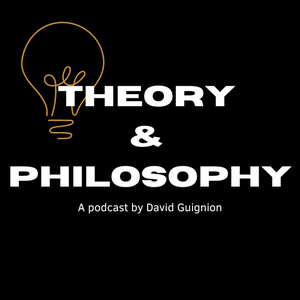 Theory & Philosophy
Theory & Philosophy
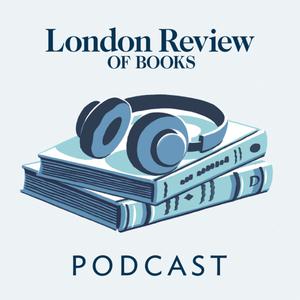 The LRB Podcast
The LRB Podcast
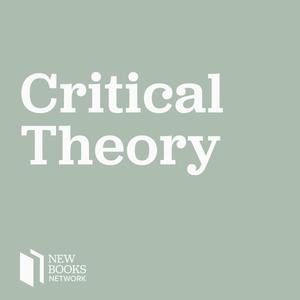 New Books in Critical Theory
New Books in Critical Theory
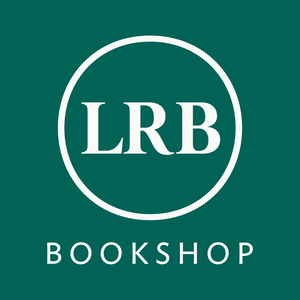 London Review Bookshop Podcast
London Review Bookshop Podcast
 Jacobin Radio
Jacobin Radio